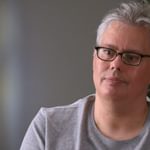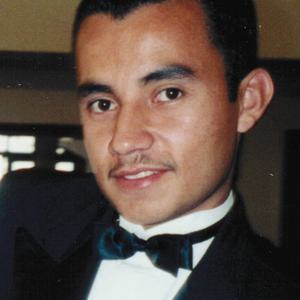
NBC’s true crime series, Dateline, featured an episode on August 13, 2021 on the wrongful conviction and eventual exoneration of former Philadelphia death-row prisoner Walter Ogrod (pictured). The episode, entitled “The Investigation,” is part of an NBC News series called “Justice for All” that reports on wrongful convictions and the U.S. criminal legal system.
For the report, NBC News anchor Lester Holt interviewed Ogrod, the mother and stepfather of 4‑year-old victim Barbara Jean Horn, journalist Tom Lowenstein, who has written extensively on the case, Philadelphia District Attorney Larry Krasner, and lawyers and investigators who were involved in the multi-decade effort to free Ogrod from death row. The episode features Ogrod’s first national interview about the case since his exoneration in June 2020. NBC marketed the episode as “reveal[ing] decades of misconduct across Philadelphia’s criminal justice system.”
Ogrod was convicted and sentenced to death in 1996 for the 1988 murder of Horn. His first trial ended in a mistrial when one of the jurors changed his mind after the jury had notified the court that it had unanimously voted to acquit. In the retrial of the case, prosecutors used unreliable evidence to convict Ogrod: testimony from a self-interested prison informant, as well as two conflicting confessions from Ogrod that were inconsistent with how the murder actually occurred and that Ogrod says were coerced.
Ogrod told Holt how homicide detectives Martin Devlin and Paul Worrell handcuffed him to a chair, denied him access to an attorney, and fed him details of the crime before he finally agreed to sign a confession. He says he was exhausted and scared when he signed the confession that they had written for him. He immediately recanted.
Krasner, who told Holt that Ogrod’s case involved an “abuse of power” by police, filed criminal perjury charges on August 13 against Devlin and two other former homicide detectives for false testimony in another Philadelphia murder case in which prosecutors had initially sought the death penalty.
An investigation by Lowenstein, whose 2004 series, Snitch Work, and 2017 book, The Trials of Walter Ogrod, played a key role in Ogrod’s exoneration, explained to Holt how meeting Ogrod made it clear that his supposed confession — which police had claimed was verbatim — was fabricated. Lowenstein investigated how a notorious jailhouse informant, John Hall, helped prosecutors frame Ogrod. Hall had earned the nickname “the Monsignor” because “he had heard more confessions than a priest.” Hall’s wife told Lowenstein that she had helped her husband create a false confession from Ogrod by sending him news reports about Horn’s murder. Hall shared the fabricated confession with another prisoner, Jay Wolchansky, because prosecutors told Hall they had used his testimony too often.

Philadelphia district attorneys fought for decades to keep Ogrod on death row, but in 2018, newly elected District Attorney Larry Krasner’s Conviction Integrity Unit reinvestigated Horn’s death. The CIU found that Philadelphia prosecutors had suppressed evidence that was favorable to Ogrod, including a personality profile that called him “easily manipulated” and forensic evidence that showed his confessions did not match the actual cause of Horn’s death and that prosecutors knew they were presenting false testimony to the jury about how the murder occurred.
In 2020, the DA’s office joined Ogrod’s attorneys in seeking his release. Horn’s mother, Sharon Fahy, also supported Ogrod’s exoneration. She told Holt, “Once I had all the facts, I, in my heart, believe he is the wrong man and he did not do this.” The COVID-19 pandemic reached the U.S. while Ogrod’s exoneration was pending, and he contracted the disease, with a fever as high as 106°. James Rollins, one of Ogrod’s post-conviction lawyers, told Holt that he worried Ogrod would die of COVID before he could be released and said he is “still angry” that prison officials denied Ogrod emergency medical care. Ogrod was exonerated and released from prison on June 5, 2020, after spending 23 years on death row.
Ogrod’s case was featured on CNN Headline News’ series, Death Row Stories, in 2018.
Lester Holt, The Investigation, Dateline NBC, August 13, 2021; Lester Holt, Inside one man’s fight to overturn a wrongful conviction, Today, August 13, 2021; NBC News PR, FRIDAY DATELINE NBC: LESTER HOLT REPORTS ON PHILADELPHIA MURDER THAT REVEALED DECADES OF SECRETS & CORRUPTION IN THE CITY’S CRIMINAL JUSTICE SYSTEM, NBC News, August 9, 2021; Mark Joyella, ‘It’s How The System Works’: ‘Dateline NBC’ Investigates Man’s Wrongful Conviction, Forbes, August 11, 2021; Michael Tanenbaum, Man wrongfully convicted of Barbara Jean Horn’s 1988 murder in Northeast Philly does ‘Dateline NBC’ interview, Philly Voice, August 9, 2021; Samantha Melamed and Chris Palmer, Three ex-Philly homicide detectives charged with perjury for their testimony during the retrial of an innocent man, Philadelphia Inquirer, August 13, 2021.

